There's Clean Water on Mars!
We just found lots of water on Mars!
The red planet got huge underground ice deposits more than enough for a global flood if they could be melted down and we will have sort of liquid water flowing everywhere.
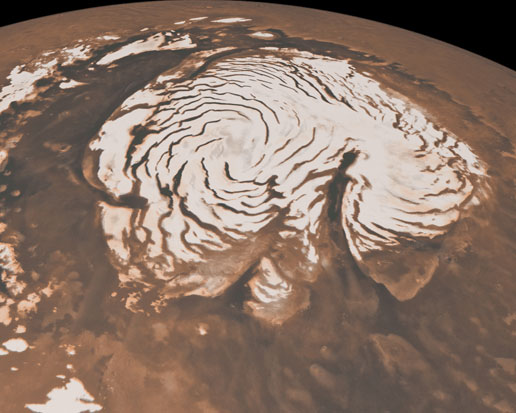
(Caption image credits NASA)
By now astrobiologists community really believe that Mars used to be wet once and that ancient liquid water is still trapped under the layers of the red planet.
The concern really should be like if the future astronauts will be able to use that liquid water that's trapped in the planet or will it be very hard to try doing that.
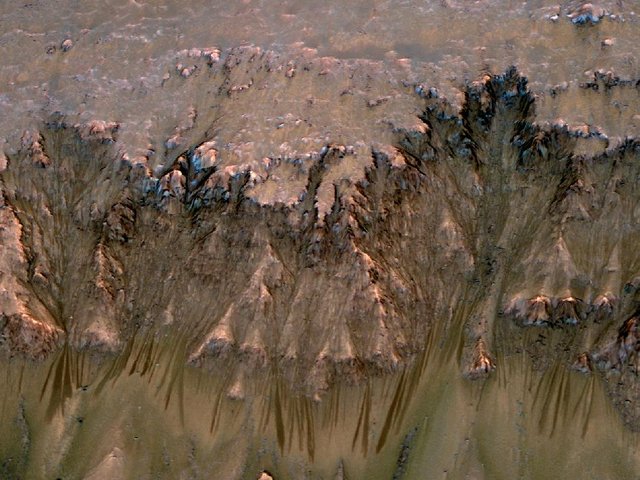
(Image credits NASA)
But recently according to a paper published in last week’s issue of the journal Science at least some of the places on Mars have huge drinkable glaciers sitting just under the surface of the red planet.
So when we hear there's ice glaciers under the surface layers of Mars it's easy to imagine pure frozen water but that's not what scientists might mean always.
Most of the pictures of Mar's up close look at the ice is sort of concerte like with ice crystals and common dust grains mixed with possible rock fragments.
But of course it has been hard to say if that is exactly right because so much of the ice is under the layers of Mar's surface with rocks and dusts deposited on top.
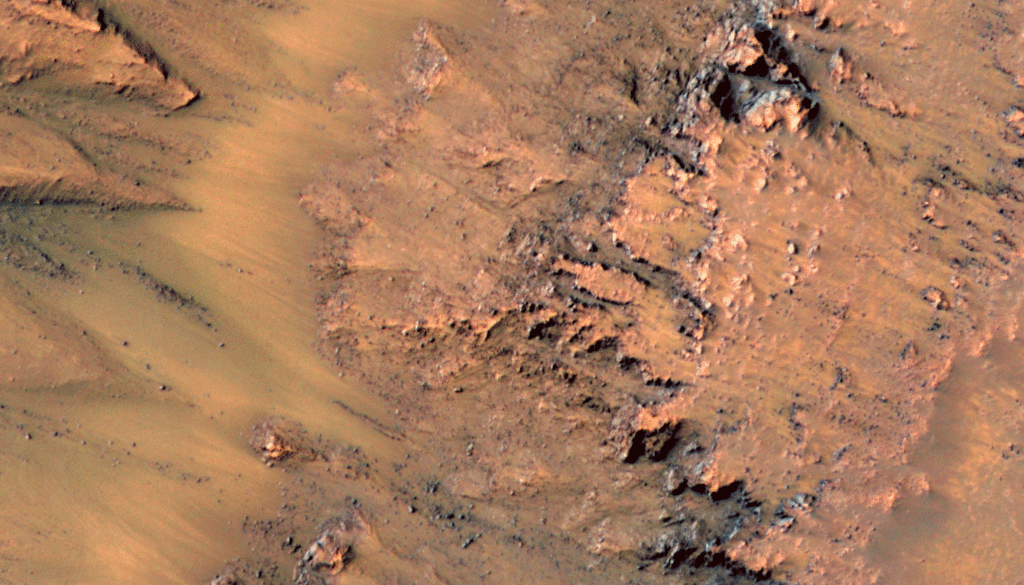
(Image credits NASA)
So in this new study the scientists tried looking for a more direct way of understanding Mars’s ice Pictures.
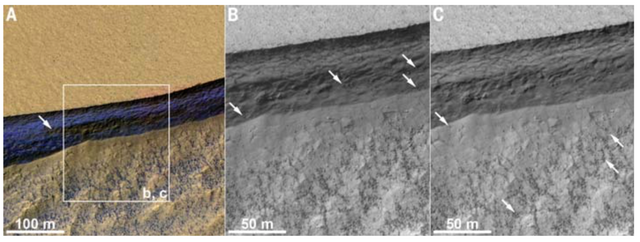
Blocks falling from an ice-rich scarp, suggestive of erosion. (Image credits NASA/MRO).
The scientists used pictures taken by the Mars Reconnaissance Orbiter to investigate eight hills where the erosion has revealed what’s under the surface.
Each of the hill had a layer of pure ice with possibly no rocks or dust mixed which were within a couple of meters Frome the surface.
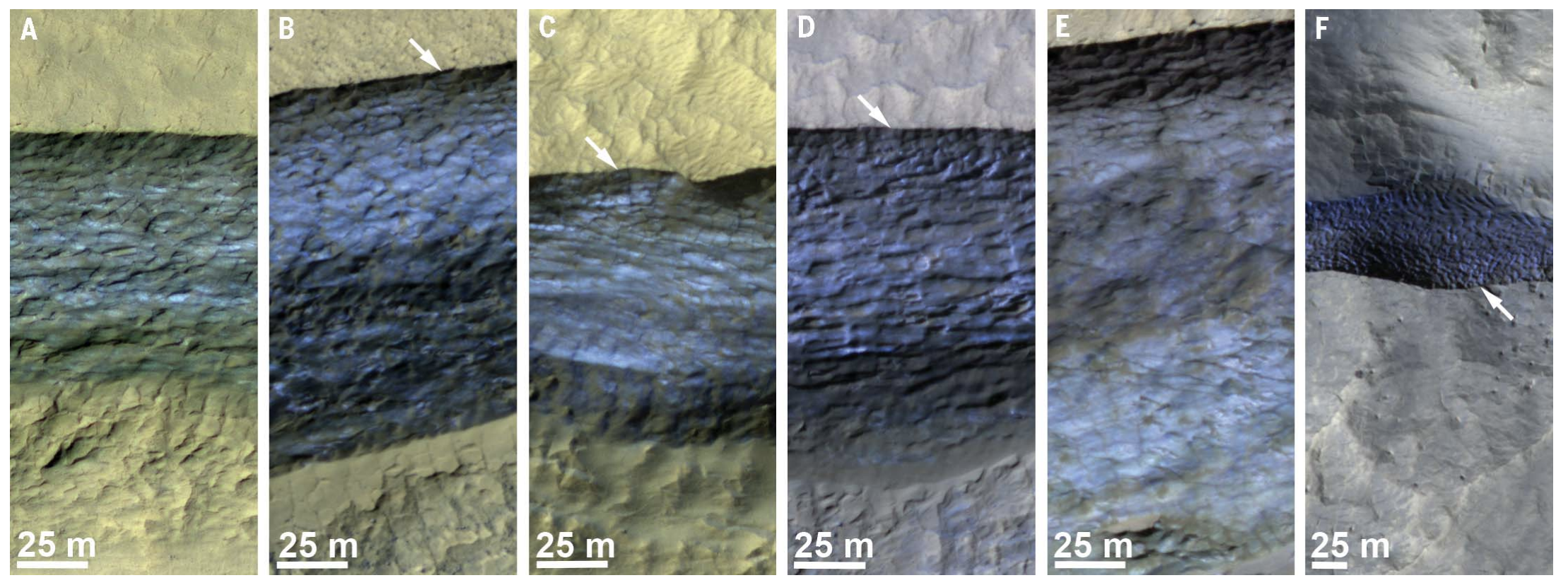
Color enhanced images of icy scarps in late spring through to early summer. (Image credits NASA/MRO).
The scientists identified the ice by looking at modified color images. In those images the hillsides ice glowed bright blue like glaciers would on Earth.
They found the ice layers were tens or even like hundreds of meters thick.
These ice reserves can be the best source of drinkable water for the future astronauts and Mars colonizers.
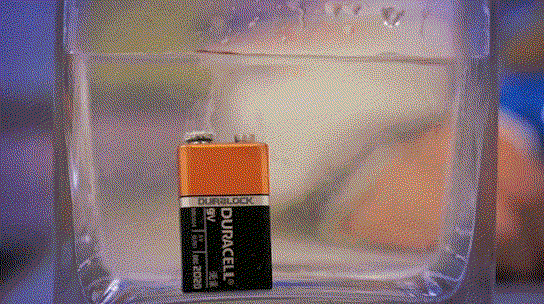
Electrolysis of Water (Credits: here)
But the possibilities doesn't just end there, we can even split the water molecules into hydrogen and oxygen which will help to make breathable air too. And the hydrogen as fuel for essential purposes.
The ice sheets probably just didn’t appear on Mars out of nowhere, studying the models shows that they probably came from gigantic snow storms from millions of years ago.
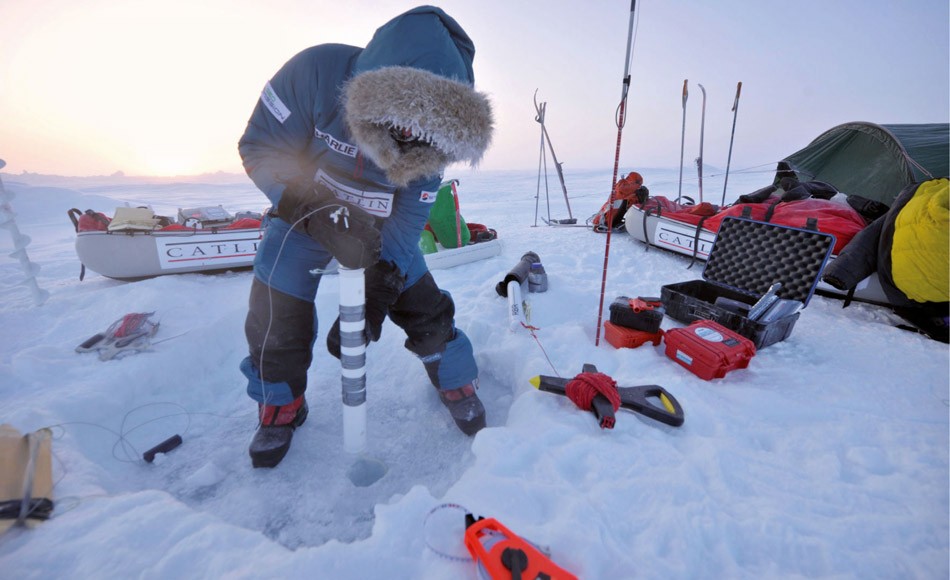
(Image credits: here)
So like we drill down on Earth in the polar ice sheets to study how earth composition was like when the ice got deposited, the future scientists can also drill into the ice layers on Mars to learn how the Martian climate composition was like and how it has changed over time and that can definitely answer lots curious questions about like how the Red Planet is so dry and how the planet might have changed over time.
What's your take away from this new discovery, comment down below.
You might like to read my previous article on How Scientists Upload A Worm's Brain Into A Robot


Hi, I found some acronyms/abbreviations in this post. This is how they expand:
Congratulations! This post has been upvoted from the communal account, @minnowsupport, by science-guy from the Minnow Support Project. It's a witness project run by aggroed, ausbitbank, teamsteem, theprophet0, someguy123, neoxian, followbtcnews, and netuoso. The goal is to help Steemit grow by supporting Minnows. Please find us at the Peace, Abundance, and Liberty Network (PALnet) Discord Channel. It's a completely public and open space to all members of the Steemit community who voluntarily choose to be there.
If you would like to delegate to the Minnow Support Project you can do so by clicking on the following links: 50SP, 100SP, 250SP, 500SP, 1000SP, 5000SP.
Be sure to leave at least 50SP undelegated on your account.